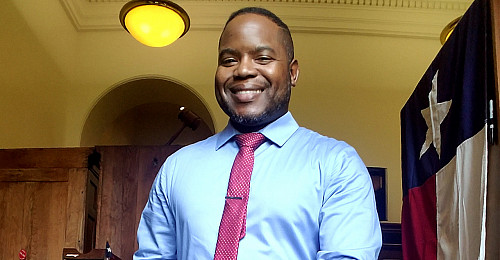- What is the definition of sexual harassment?
A: The legal definition says that sexual harassment means unwelcome sexual advances, requests for sexual favors, and other verbal or physical conduct of a sexual nature when:
- submission to such conduct is made, either explicitly or implicitly, a term or condition of a person’s employment or education; or
- submission or rejection of such conduct by a person is used or threatened as the basis for academic or employment decisions, or evaluations affecting that person; or
- such conduct has the purpose or effect of a) unreasonably interfering with the person’s academics or professional performance, or b) of creating an intimidating, hostile, or offensive employment, educational or campus environment for any person or group of persons.
- What sorts of behavior (verbal and physical) would be considered inappropriate or unacceptable regarding sexual harassment?
A: There are two types of sexual harassment: quid pro quo (something for something) and hostile environment. Some examples of each include, but are not limited to, the following:
- Quid pro quo: a) direct or implied threats that submission to sexual advances will be a condition of employment, work status, promotion, grades, or letters of recommendation; b) intimidating conduct that exerts pressure for sexual activity.
- Hostile environment: a) sexually explicit statements, questions, jokes, anecdotes, or references to sexual orientation; b) inappropriate touching, patting, hugging, or brushing against a person’s body; c) inequities in references to males and females (e.g. “men and girls”).
- If I ask someone out on a date, could that be considered sexual harassment?
A: No, not usually. If the individual declines your request for a date and indicates to you that s/he does not want you to ask again, but you persist, then it could be considered harassing behavior.
- I am not sure, but I think someone may have sexually harassed me. What should I do?
A: If you are not comfortable confronting the individual directly, then we encourage you to talk with a Sexual Harassment Advisor (SHA). The SHA is trained to assist you in evaluating your particular situation using Southwestern University’s policy of Sexual Harassment. Sometimes just having someone to listen to you can help you evaluate the situation. You can explain the circumstances surrounding the incident to help clarify your thinking on the matter. You may even be advised to write down the details of the incident, which is another way of sorting the facts. Just keep in mind that the SHA’s role is to advise, not to make decisions for you. SHA’s are not part of the official University complaint procedure regarding decision-making.
- Will you explain the major differences between an informal and formal complaint of sexual harassment at Southwestern University?
A; There are four main phases of handling a sexual harassment complaint: 1) Initial complaint, 2) Investigation, 3) Determination, Notification, Appeal, 4) Disciplinary Actions. The informal complaint process normally ends after phase 1, while the formal complaint process normally goes through all four phases.
- If I begin an informal complaint against an individual, can I back out if I change my mind? How about a formal complaint?
A: The SHA will report every complaint to the SHO, whether it is an informal or formal complaint. If the SHO determines that the safety of the alleged victim or any other member of the University community or general public may be at risk, then, no, you would not be able to back out of the process. In all other instances, a case-by-case determination would be made.
- But, if I had specifically requested the SHA to maintain confidentiality, wouldn’t that make a difference? If not, please define “confidentiality” as it relates to the sexual harassment policy and procedure.
A: It may not make a difference. It is very important to be aware of the meaning of confidentiality within the Sexual Harassment Policy and Procedure. A SHA will maintain confidentiality within the limits of the law. However, the SHA will report every incident to the SHO who will also maintain confidentiality within the limits of the law. It is important to note that the SHO may determine that the safety of the alleged victim or any other member of the University community or general public may be at risk. If such a determination is made, a full investigation will ensue, even without consent of the alleged victim or alleged harasser. If you have any reservations about this practice, you may want to seriously consider omitting specific names from your conversation with any SHA. Please refer to the full Sexual Harassment Policy and Procedure for more information PRIOR to your discussion with the SHA.
- What is the purpose of the SHO being notified of every incident of alleged sexual harassment and how can I be assured that confidentiality will be maintained?
A: It is imperative that the SHO be aware of ALL alleged incidents so those patterns of behavior can be identified over time (particularly if incident reports did not include names of alleged harassers). This information also assists the SHO to develop programs aimed at eradicating such behavior. The SHO will maintain confidentiality within the limits of the law and will not disclose sensitive information to any individual except for those who have a specific need to know.

Parent Leadership Gift Council members and fellow parent volunteers warmly welcome new students and their families to Southwestern at send-off parties across the state.
more information
Emilie Moeller ’18 shares how her time at Southwestern transformed her from a shy Unicorn Handler to a confident sorority president and tennis team captain.
more information
To give you a glimpse into one student’s recent Friday night, Keyshaan Castle ’20 , takes us behind the scenes of a blacklight dodgeball tournament, hosted by Zeta Tau Alpha and SIRA.
more information
Karim Clarke ’26 shares his eye-opening Houston Methodist Research Institute internship journey.
more information
Quincy Holland ’19 is the nineteenth recipient from SU to earn the Texas Association of School Personnel Administrators
more information
Alejandro Medina ’24 demonstrates outstanding potential in computing research by the Computing Research Association.
more information
Student’s study unveils the connections between education, gender, and belief in conspiracy theories.
more information
Karim Clarke ’26 shares his eye-opening Houston Methodist Research Institute internship journey.
more information
Parent Leadership Gift Council members and fellow parent volunteers warmly welcome new students and their families to Southwestern at send-off parties across the state.
more information
Emilie Moeller ’18 shares how her time at Southwestern transformed her from a shy Unicorn Handler to a confident sorority president and tennis team captain.
more information
To give you a glimpse into one student’s recent Friday night, Keyshaan Castle ’20 , takes us behind the scenes of a blacklight dodgeball tournament, hosted by Zeta Tau Alpha and SIRA.
more information
Alejandro Medina ’24 demonstrates outstanding potential in computing research by the Computing Research Association.
more information
Karim Clarke ’26 shares his eye-opening Houston Methodist Research Institute internship journey.
more information
Alejandro Medina ’24 demonstrates outstanding potential in computing research by the Computing Research Association.
more information
SU celebrates four campus community members with the 2024 Mundy Awards and recognizes those who have achieved milestone anniversaries with the University.
more information
SU Business Club collaborates with Houston Methodist Hospital in annual case study competition.
more information
A group of students attended a conference focused on empowering and developing Hispanic leadership.
more information
Students work with faculty and staff to create an interactive digital map of Southwestern’s campus.
more information
Parent Leadership Gift Council members and fellow parent volunteers warmly welcome new students and their families to Southwestern at send-off parties across the state.
more information
Students work with faculty and staff to create an interactive digital map of Southwestern’s campus.
more information
















